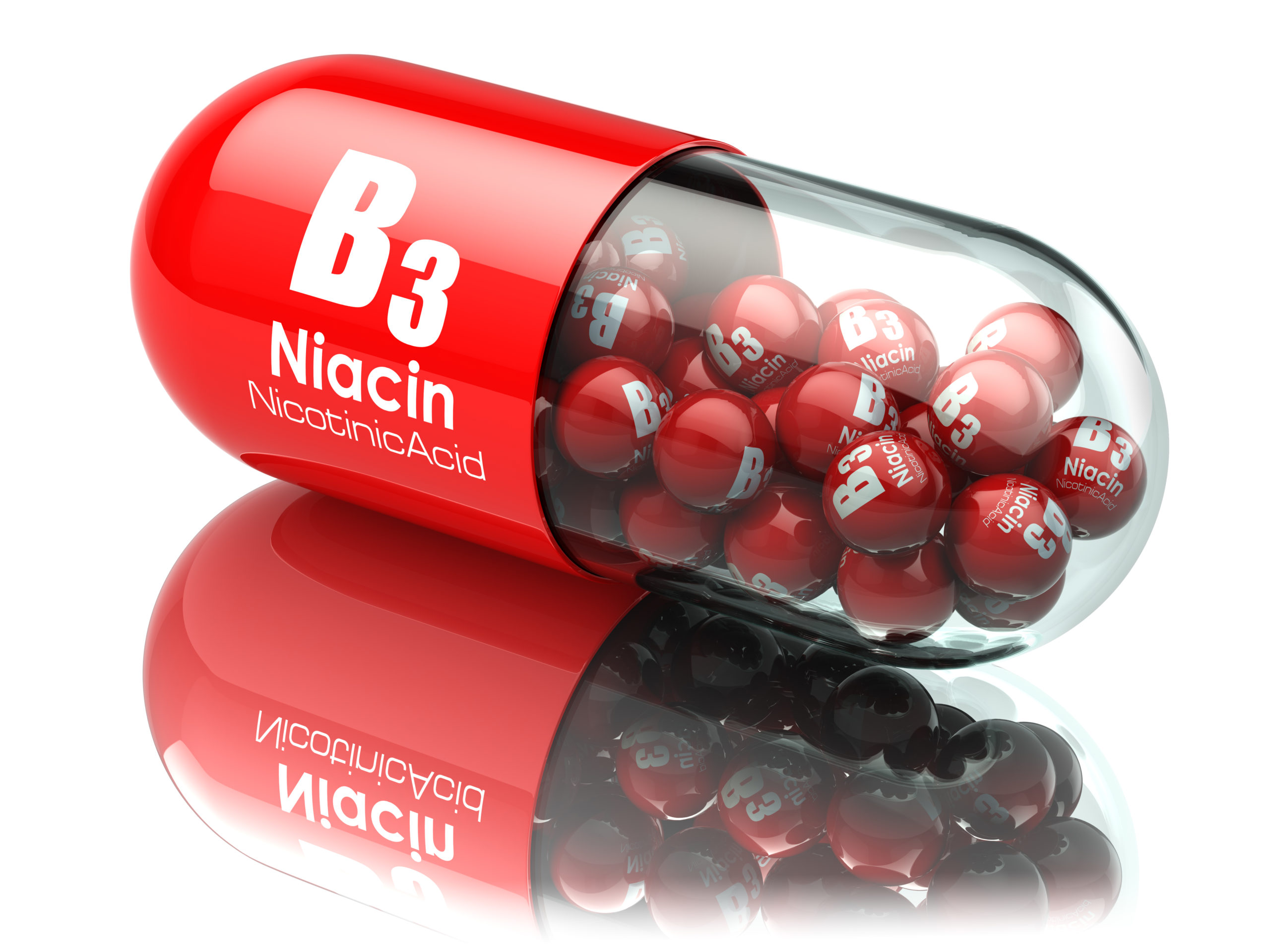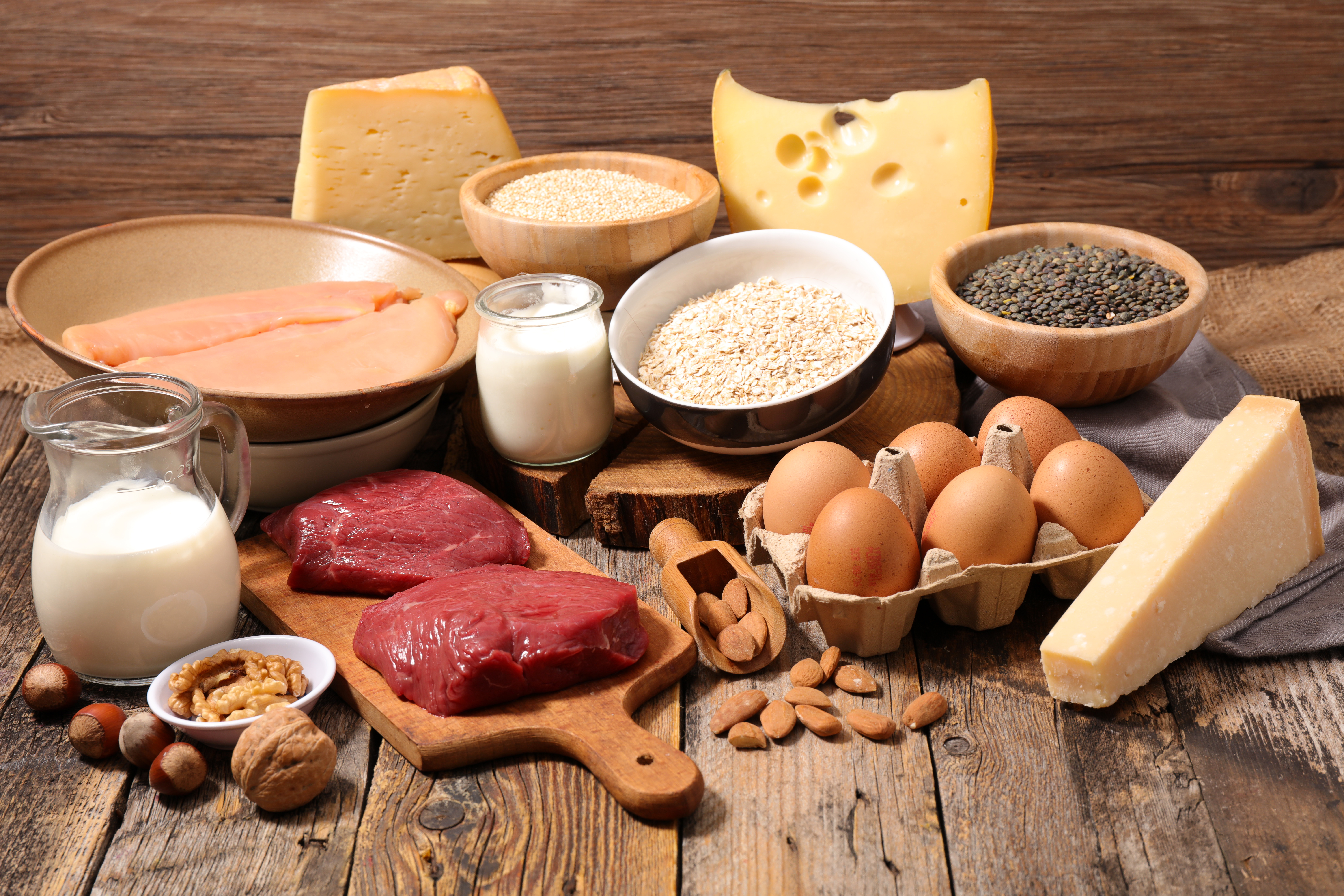Ever feel like you’re running on empty? You’re not alone. It’s NAD+, your body’s energy currency, that may be in short supply. Don’t fret! We’ve got the scoop on how your diet can naturally boost those levels back up. So, grab a fork and let’s dive into the world of NAD+ boosting foods!
Understanding the Role of NAD+ in Our Bodies
You’ve got to understand how vital NAD+ is in your body’s cellular processes, it’s more critical than you might think. As a coenzyme present in every single cell of your body, NAD+, or nicotinamide adenine dinucleotide, plays an indispensable role in cellular energy production. It acts as a carrier for electrons during metabolic reactions, facilitating the conversion of nutrients into ATP – the primary energy currency of cells.
NAD+ also holds great significance when it comes to the aging process. Research shows that levels of this crucial molecule decline naturally as we age. This decline is associated with various negative health impacts such as deteriorating brain function, increased susceptibility to disease, and overall physical frailty.
Understanding and addressing these changes can potentially slow down the NAD+ aging process and delay these unwanted effects. Ensuring sufficient dietary intake of its precursors like niacin (vitamin B3), tryptophan, or directly consuming NAD+ supplements can help boost its levels in your body.
The Link Between Diet and NAD+ Levels
It’s important to understand how what you eat can directly impact the amount of this crucial molecule in your body. Your diet plays a significant role in NAD+ metabolism, which is an essential aspect of cellular health and the aging process.
Here is a table detailing some dietary sources rich in niacin, which can boost NAD+ levels:
| Food Source | Niacin Content |
| Chicken breast (100g) | 14.8 mg |
| Tuna (100g) | 22.1 mg |
| Mushrooms (1 cup) | 7.6 mg |
| Green peas (1 cup) | 3 mg |
| Avocado (one medium) | 3.5 mg |

Incorporating these foods into your diet helps increase niacin intake, thus boosting NAD+ metabolism. It’s key to note that while diet alone may not reverse the decline in NAD+ levels associated with aging, it can contribute significantly to maintaining optimal levels for longer.
Emerging research suggests that certain nutrients like resveratrol found in grapes and dark chocolate might synergize with niacin to enhance its effects on NAD+, but more studies are needed.
Understanding how diet influences NAD+ metabolism is an exciting area of nutritional science and holds promise for interventions aimed at slowing down the aging process.
Top Foods That Can Increase NAD+ Naturally
You’re likely aware that your diet plays a crucial role in your health, but did you know it can significantly impact your NAD+ levels as well? Let’s delve into the specifics of how certain foods, particularly NAD+ boosting fruits and vegetables, can naturally increase these vital coenzymes in your body. Additionally, we’ll explore protein-rich sources that not only contribute to overall wellness but also serve as effective NAD+ boosters, underlining the importance of a balanced diet for optimal cellular function.
NAD+ Boosting Fruits
Avocados and tomatoes aren’t just tasty, they’re also packed with NAD+ boosting nutrients. These fruits are rich in niacinamide, a form of vitamin B3 that can increase your body’s levels of NAD+. But don’t stop there! Deeply colored berries are another excellent source of NAD+. The antioxidant-rich pigments found in strawberries, blueberries, and raspberries offer a protective effect on the NAD+ metabolism.
Tropical fruits shouldn’t be ignored either. Packed with vitamins A and C, pineapple, mangoes, and papayas provide substantial Tropical fruits NAD+ content. Their anti-inflammatory properties further enhance the overall benefits. By incorporating these nutrient-dense foods into your diet regularly, you’re not only tantalizing your taste buds but also significantly improving your health by naturally increasing your body’s levels of NAD+.
Vegetables for NAD+ Increase
Don’t overlook the importance of vegetables in increasing NAD+; broccoli, green peas, and mushrooms are among the top contenders. Their nutrient-packed profiles make them ideal for promoting cellular health.
Vegetable cooking methods can significantly impact their nutritional value. Steaming or stir-frying helps retain nutrients better than boiling. Seasonal vegetable benefits include peak freshness and optimal nutrition.
Here’s a brief look at these veggies:
| Vegetable | NAD+ Boosting Nutrient |
| Broccoli | Glucoraphanin |
| Green Peas | Nicotinic Acid |
| Mushrooms | Nicotinamide |
Engaging in a diet rich in such foods will contribute to your overall health while also boosting your NAD+ levels – an essential coenzyme involved in numerous metabolic processes.
Protein-Rich NAD+ Sources
While increasing your intake of vegetables is a critical part of boosting NAD+ levels, it’s important to not overlook the significance of proteins. Now, let’s shift our focus to protein-rich sources and their impact on NAD+. Protein absorption efficiency plays a key role in how effectively these proteins can contribute to your overall health and specifically for NAD+ production. When we talk about Animal vs Plant based Proteins, it’s necessary to consider that although both are beneficial, animal proteins generally have higher absorption rates. This means you’re likely getting more out of a serving of animal protein compared to plant-based ones. However, incorporating a variety of both into your diet ensures you get all essential amino acids while promoting optimal NAD+ synthesis.

The Effectiveness of NAD+ Supplements
You’re about to delve into the compelling world of supplement efficacy research, specifically targeting NAD+ products. It’s not enough to simply choose a product; you’ll learn how to compare various NAD+ supplements based on evidence-backed data and understand their potential benefits and drawbacks. Moreover, we’ll discuss potential side effects, ensuring you’re equipped with comprehensive knowledge before making any decisions regarding your health regimen.
Supplement Efficacy Research
There’s ongoing research to determine the efficacy of supplements in naturally boosting NAD+ levels. The landscape of supplement regulation is complex: not all products meet their claims, and consumer awareness is key.
Consider this table summarizing some of the recent findings:
| Supplement | Claimed Benefit | Research Status |
| Niagen | Increases NAD+ levels | Under investigation |
| Resveratrol | Activates Sirtuin genes, which need NAD+ | Mixed results |
| Pterostilbene | Similar to Resveratrol, but more bioavailable | Preliminary positive findings |
| NMN | Direct precursor to NAD+, improves blood flow | Early human trials underway |
| Curcumin | Potential indirect benefits on NAD+ levels through anti-inflammatory effects | Inconclusive evidence |
It’s crucial for you to scrutinize these supplements and stay informed about ongoing research. After all, your health deserves nothing less than a well-informed decision.
Comparing NAD+ Products
It’s important to compare various NAD+ products before making a purchase, ensuring you’re getting the most effective option for your needs. When comparing NAD+ brands, look at product efficacy, ingredients used, and customer reviews.
NAD+ products pricing can vary widely due to factors such as concentration of active ingredient, brand reputation, and additional nutrients included. Some brands might offer more affordable options; however, they might not have as high potency or quality of ingredients.
Remember that the most expensive product isn’t necessarily the best one. It’s crucial to find a balance between price and quality. Always do thorough research and consult with a healthcare professional before incorporating any supplements into your routine. A well-informed decision will ensure you get the maximum benefits from your chosen NAD+ supplement.
Potential Side Effects
While they’re generally safe, some potential side effects of using NAD+ supplements can include mild nausea, fatigue, headaches, and diarrhea. However, two important considerations are NAD+ allergies and medication interactions.
– NAD+ Allergies:
– While rare, it’s possible to have an allergic reaction to NAD+. This could result in rashes or hives.
– If you’ve never used NAD+ before and notice any adverse reactions after starting the supplement, stop use immediately and consult a healthcare provider.
– Medication Interactions:
– Certain medications may interact negatively with NAD+, possibly altering its effectiveness or causing unwanted side effects.
– It’s always best to discuss your medication regimen with a healthcare provider before adding any new supplements.
Remember: while these instances are not common, being aware and proactive is key in maintaining your health.
Lifestyle Habits That Support NAD+ Production
Adopting healthy lifestyle habits can significantly boost your body’s NAD+ production. Exercise, a key component of a healthy lifestyle, has been shown to stimulate the production of NAD+. Regular physical activities like jogging, swimming or cycling trigger various biological processes that increase NAD+ synthesis in your cells.

Research suggests that when you exercise, your muscles require more energy hence stimulating mitochondria to produce more ATP – the body’s main source of cellular energy. As part of this process, NAD+ levels are boosted to facilitate energy transfer within the cells.
Furthermore, hydration plays an essential role in promoting optimal cellular function and supporting NAD+ production. Water is needed for numerous biochemical reactions in your body including those involved with producing and utilizing NAD+. Dehydration can impair these functions leading to decreased levels of NAD+. Therefore, it’s vital that you maintain adequate fluid intake throughout the day.
Potential Health Risks of Low NAD+ Levels
Low levels of this vital molecule can pose several health risks, including accelerated aging and impaired cellular function. When your body is low on NAD+, you’re likely to experience certain symptoms that indicate a depletion. It’s important to understand the signs of NAD+ depletion for early detection and intervention.
NAD+ depletion symptoms typically include:
* Fatigue
* This isn’t just your everyday tiredness; it’s an overwhelming exhaustion that doesn’t improve with rest.
* Weakness
* You might find it harder than usual to complete physical tasks.
Moreover, there’s a strong link between NAD+ and aging. As you grow older, your body naturally produces less NAD+, leading to faster cellular aging.
The association between low NAD+ levels and age-related decline has been extensively studied:
* Cognitive impairment
* Low levels of NAD+ have been associated with reduced mental sharpness and memory problems.
* Increased susceptibility to diseases
* Depletion in NAD+ may compromise immune function, making you more prone to illnesses.
It’s clear that maintaining healthy NAD+ levels is crucial for overall wellbeing. Stay vigilant about possible signs of depletion, and take action to replenish your stores if necessary.
Frequently Asked Questions
How Does the Aging Process Impact the Body’s Nad+ Levels?
As you age, your body’s NAD+ levels naturally decrease. This can impact skin health, but using NAD+ in skincare or taking NAD+ supplements can offset these effects and support overall cellular health.
Are There Any Medical Conditions That Can Contribute to Low Nad+ Levels?
Yes, certain medical conditions can lower your NAD+ levels. Genetic predispositions and environmental influences play a part too. It’s not just about dietary sources, it’s a wider health puzzle you’ve got to solve.
Can Certain Medications Affect Nad+ Production in the Body?
Yes, certain medications can impact NAD+ production. It’s vital to understand potential drug NAD+ interactions. Some drugs may reduce NAD+, while others could increase it. Always consult your doctor about any NAD+ supplements’ impact.
How Do Physical Activities or Exercises Contribute to Nad+ Production?
Exercise intensity plays a crucial role in boosting NAD+ synthesis. When you’re active, your body’s demand for energy increases, triggering an uptick in NAD+ production. It’s like killing two birds with one stone!
Are There Any Specific Cooking Methods That Can Help Preserve Nad+ in Foods?
Yes, there are NAD+ preservation techniques in cooking. You’ll want to avoid high-heat methods like grilling or frying. Instead, opt for steaming or boiling as they’re gentler on the NAD+ content in foods.
